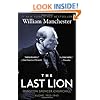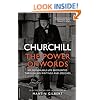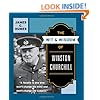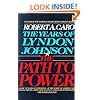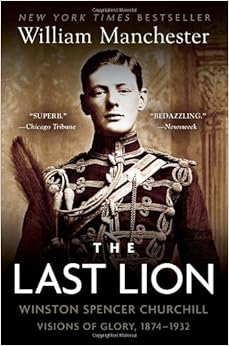
The Last Lion: Volume 1: Winston Churchill
and over one million other books are available for Amazon Kindle. Learn more


Flip to back
Flip to front

The Last Lion: Winston Spencer Churchill: Visions of Glory, 1874-1932 Paperback – April 1, 1984
See all 25 formats and editions
Hide other formats and editions
| Amazon Price | New from | Used from |
|
Mass Market Paperback
"Please retry"
|
—
|
— | — |
|
Audio CD, Audiobook, Unabridged
"Please retry"
|
$28.89 | $30.04 |

$13.33
FREE Shipping on orders over $35.
Only 6 left in stock (more on the way).
Ships from and sold by Amazon.com.
Gift-wrap available.
NO_CONTENT_IN_FEATURE
Start reading The Last Lion on your Kindle in under a minute.
Don't have a Kindle? Get your Kindle here, or download a FREE Kindle Reading App.
Don't have a Kindle? Get your Kindle here, or download a FREE Kindle Reading App.
Best Books of the Month
Want to know our Editors' picks for the best books of the month? Browse Best Books of the Month, featuring our favorite new books in more than a dozen categories.
Want to know our Editors' picks for the best books of the month? Browse Best Books of the Month, featuring our favorite new books in more than a dozen categories.
Product Details
Would you like to update product info or give feedback on images?.
|
Editorial Reviews
Review
“Absolutely magnificent . . . a delight to read . . . one of those books you devour line by line and word by word and finally hate to see end.”—Russell Baker
“Bedazzling.”—Newsweek
“Manchester has read further, thought harder, and told with considerable verve what is mesmerizing in [Churchill’s] drama. . . . One cannot do better than this book.”—The Philadelphia Inquirer
“An altogether absorbing popular biography . . . The heroic Churchill is in these pages, but so is the little boy writing forlorn letters to the father who all but ignored him.”—People
“Superb . . . [Manchester] pulls together the multitudinous facets of one of the richest lives ever to be chronicled. . . . Churchill and Manchester were clearly made for each other.”—Chicago Tribune
“A vivid, thoroughly detailed biography of the Winston Churchill nobody knows.”—Boston Herald
“Adds a grand dimension . . . rich in historical and social contexts.”—Time
“Bedazzling.”—Newsweek
“Manchester has read further, thought harder, and told with considerable verve what is mesmerizing in [Churchill’s] drama. . . . One cannot do better than this book.”—The Philadelphia Inquirer
“An altogether absorbing popular biography . . . The heroic Churchill is in these pages, but so is the little boy writing forlorn letters to the father who all but ignored him.”—People
“Superb . . . [Manchester] pulls together the multitudinous facets of one of the richest lives ever to be chronicled. . . . Churchill and Manchester were clearly made for each other.”—Chicago Tribune
“A vivid, thoroughly detailed biography of the Winston Churchill nobody knows.”—Boston Herald
“Adds a grand dimension . . . rich in historical and social contexts.”—Time
From the Publisher
15 1.5-hour cassettes
--This text refers to the
Audio Cassette
edition.
More About the Author
William Manchester is Professor of History Emeritus at Wesleyan University. His bestselling books include The Last Lion, a multi-volume biography of Winston Churchill; American Caesar, a biography of Douglas MacArthur; The Death of a President, The Arms of Krupp, and A World Lit Only by Fire. He lives in Connecticut.
Customer Reviews
Most Helpful Customer Reviews
238 of 243 people found the following review helpful
By
Raoul
on October 31, 2012
Format: Hardcover
Verified Purchase
5 Comments
Sending feedback...
I have been nervously awaiting this book for years. My first encounter with Manchester came when volume one first came out. I was a child, and I went to visit my grandmother (who was in London during the Blitz); she held the book up to show me what she was reading. "The man." she said. "The great, great man."
Years later, I read the first two volumes almost in one sitting - couldn't put them down - and have reread large parts of them over the years (every time I looked some piece up I'd find myself sitting down for an hour or two because I couldn't stop). I remember when Finest Hour reported that the trilogy would never be finished: it was like a punch in the stomach.
I had my doubts about the ability of another author to write worthily of Manchester, and I was afraid this volume wouldn't measure up. No need to worry: this is every bit as much a page-turner as the last two volumes. It's not QUITE Manchester - I thought I could feel a bit of a difference in style, somehow - and yet it IS extremely good, much better than I had expected.
Like the first two volumes, we begin with a preamble ("The Lion Hunted") in which we are (re-)acquainted with the book's subject. There is a certain amount of repetition of material from the two earlier preambles, but much good new material as well. I've read thousands of pages on Churchill, but even I found some good new anecdotes and quotations here. After that we're hurled right into the middle of the most dramatic days of World War Two. The unexpected, catastrophic defeats; the incompetence and perfidy of the people in charge of France - it doesn't take much from a writer to make this an exciting story, and yet I don't think it has ever been told better than this. Really, just what I had hoped for from Manchester himself.Read more ›
Years later, I read the first two volumes almost in one sitting - couldn't put them down - and have reread large parts of them over the years (every time I looked some piece up I'd find myself sitting down for an hour or two because I couldn't stop). I remember when Finest Hour reported that the trilogy would never be finished: it was like a punch in the stomach.
I had my doubts about the ability of another author to write worthily of Manchester, and I was afraid this volume wouldn't measure up. No need to worry: this is every bit as much a page-turner as the last two volumes. It's not QUITE Manchester - I thought I could feel a bit of a difference in style, somehow - and yet it IS extremely good, much better than I had expected.
Like the first two volumes, we begin with a preamble ("The Lion Hunted") in which we are (re-)acquainted with the book's subject. There is a certain amount of repetition of material from the two earlier preambles, but much good new material as well. I've read thousands of pages on Churchill, but even I found some good new anecdotes and quotations here. After that we're hurled right into the middle of the most dramatic days of World War Two. The unexpected, catastrophic defeats; the incompetence and perfidy of the people in charge of France - it doesn't take much from a writer to make this an exciting story, and yet I don't think it has ever been told better than this. Really, just what I had hoped for from Manchester himself.Read more ›
Thank you for your feedback.
If this review is inappropriate, please let us know.
Sorry, we failed to record your vote. Please try again
163 of 168 people found the following review helpful
By
Glenn McDorman
on September 28, 2002
Format: Hardcover
Comment
Sending feedback...
There are many good biographies out there, but a great one is rare. This is one of the great ones; William Manchester has taken the art of biography to a new level. Most biographies are merely "interesting," rarely making any effort to give the reader a sense of what it would have been like to be or know the subject. Manchester does just that. Rather than write a narrative story of Winston Churchill's life, he has chosen instead to give us a rich tapestry of Chrchill's life as it was woven. Many biographers are simply idolizers of their subjects; this is not so with Manchester. He reserves no harsh judgment, just as he reserves no due praise; when he is reporting something negative that Winston did he says it was negative, and explains why.
But The Last Lion is more than just a biography. In attempting to capture the essence of Churchill Manchester has written some of the best material about World War I and the appeasement crisis. It is rare that historical events can be made to feel like the present, but Manchester has done this.
Both volumes of this work are well worth your money, your time, and your attention. Indeed, the only bad part of Manchester's biography is that he will not be able to finish it. It is not known how much of the third volume he was able to put together before Alzheimer's made work impossible for him, but it can be hoped that whatever he was able to do will someday be published, no matter how unpolished it may be.
But The Last Lion is more than just a biography. In attempting to capture the essence of Churchill Manchester has written some of the best material about World War I and the appeasement crisis. It is rare that historical events can be made to feel like the present, but Manchester has done this.
Both volumes of this work are well worth your money, your time, and your attention. Indeed, the only bad part of Manchester's biography is that he will not be able to finish it. It is not known how much of the third volume he was able to put together before Alzheimer's made work impossible for him, but it can be hoped that whatever he was able to do will someday be published, no matter how unpolished it may be.
Thank you for your feedback.
If this review is inappropriate, please let us know.
Sorry, we failed to record your vote. Please try again
147 of 152 people found the following review helpful
By
Patrick Ruffini
on July 14, 2002
Format: Hardcover
2 Comments
Sending feedback...
William Manchester's first Churchill volume covers the first fifty eight years of Winston's life. His second, "Alone," covers just eight. Assuming that there will be a third, it will cover the final quarter century, including most of World War II and Churchill's two spells as Prime Minister. To the elementary observer, these divisions seem somewhat out of sorts.
It's only by reading that middle volume that we understand just how critical those eight years were. Above all, "Alone" is a morality play -- the best one I know -- about what happens when democracies fail to confront aggression. At no other time in the 20th Century were so many people so wrong about a matter as grave as the Nazi buildup in the 1930s. Only Winston Churchill and a few of his cohorts disagreed at the time.
Early in the book, Manchester briefly lays out a powerful case for Britain's aversion to confronting Germany. Britain sensed the unfairness of the Versailles "diktat," and reacted strongly against it. To a great degree, London was fed up with France's insolence after the war, both in its lust for revenge against Germany, and in the flaccid disillusionment of Paris intellectuals. At the same time, Great Britain was a nation cornered by two bloodthirsty wolves -- Nazism and Bolshevism. In order to defeat the other, one would have to be appeased. Being a country dominated by aristocrats, Britain chose to enlist Hitler as a bulwark against Communism. In doing so, they ignored the basic fact of geopolitical proximity: only Germany, abutting France and a few hundred miles away from Britain's shores, had the capacity to strike at the West. Britain's aristocrats bet wrong, and Churchill, ever the "traitor to his class" immediately recognized it.
Churchill's story also holds valuable lessons for us today.Read more ›
It's only by reading that middle volume that we understand just how critical those eight years were. Above all, "Alone" is a morality play -- the best one I know -- about what happens when democracies fail to confront aggression. At no other time in the 20th Century were so many people so wrong about a matter as grave as the Nazi buildup in the 1930s. Only Winston Churchill and a few of his cohorts disagreed at the time.
Early in the book, Manchester briefly lays out a powerful case for Britain's aversion to confronting Germany. Britain sensed the unfairness of the Versailles "diktat," and reacted strongly against it. To a great degree, London was fed up with France's insolence after the war, both in its lust for revenge against Germany, and in the flaccid disillusionment of Paris intellectuals. At the same time, Great Britain was a nation cornered by two bloodthirsty wolves -- Nazism and Bolshevism. In order to defeat the other, one would have to be appeased. Being a country dominated by aristocrats, Britain chose to enlist Hitler as a bulwark against Communism. In doing so, they ignored the basic fact of geopolitical proximity: only Germany, abutting France and a few hundred miles away from Britain's shores, had the capacity to strike at the West. Britain's aristocrats bet wrong, and Churchill, ever the "traitor to his class" immediately recognized it.
Churchill's story also holds valuable lessons for us today.Read more ›
Thank you for your feedback.
If this review is inappropriate, please let us know.
Sorry, we failed to record your vote. Please try again
78 of 78 people found the following review helpful
By
Mike Powers
on April 30, 2000
Format: Paperback
Verified Purchase
3 Comments
Sending feedback...
"The Last Lion: Visions of Glory, 1874-1932," is the first of William Manchester's projected three-volume biography of Winston Spencer Churchill. I found it a superbly crafted, supremely well researched account of the first 58 years of the life of the 20th century's greatest statesman. With wit and candor, Manchester chronicles Churchill from his earliest days as the neglected and troublesome first child of Lord Randolph Churchill and his American-born wife, Jennie, to his entry into the political "wilderness" over home rule in India in 1932. Manchester's portrait of his subject is balanced and objective; we see Churchill at his finest: a courageous (almost to the point of foolhardiness) army officer, and later a gifted Member of Parliament who became one of the youngest Cabinet ministers in British history. We also see him at his worst: a Cabinet minister with appalling political judgment at times, quick to meddle in other ministers' affairs while neglecting his own, and with an uncanny ability to alienate not only his political foes, but almost all his political allies as well.
In addition to a wonderfully written chronology of Churchill's life, Manchester provides an overview of the times in which Churchill lived. I was fascinated by the author's account of Victorian England -- its culture, its mores, and its view of itself in the world. The sections which describe Churchill's times make highly entertaining and absorbing reading by themselves.
"The Last Lion: Visions of Glory, 1874-1932," clearly shows why William Manchester is one of the pre-eminent biographers at work today.Read more ›
In addition to a wonderfully written chronology of Churchill's life, Manchester provides an overview of the times in which Churchill lived. I was fascinated by the author's account of Victorian England -- its culture, its mores, and its view of itself in the world. The sections which describe Churchill's times make highly entertaining and absorbing reading by themselves.
"The Last Lion: Visions of Glory, 1874-1932," clearly shows why William Manchester is one of the pre-eminent biographers at work today.Read more ›
Thank you for your feedback.
If this review is inappropriate, please let us know.
Sorry, we failed to record your vote. Please try again
